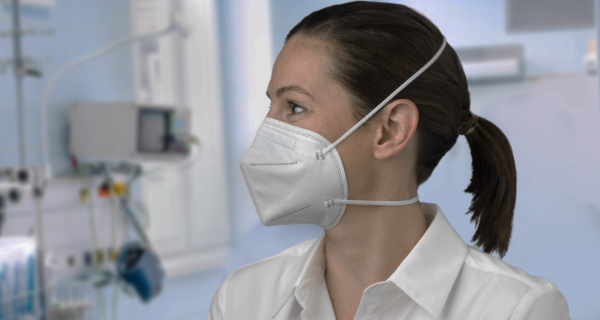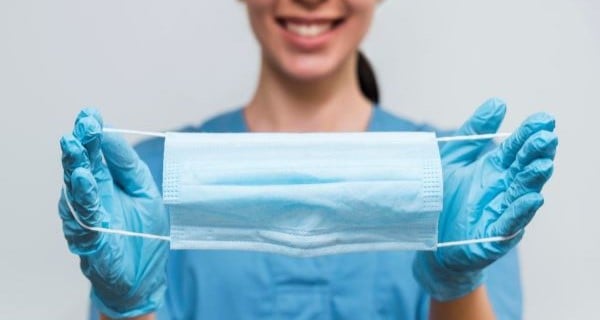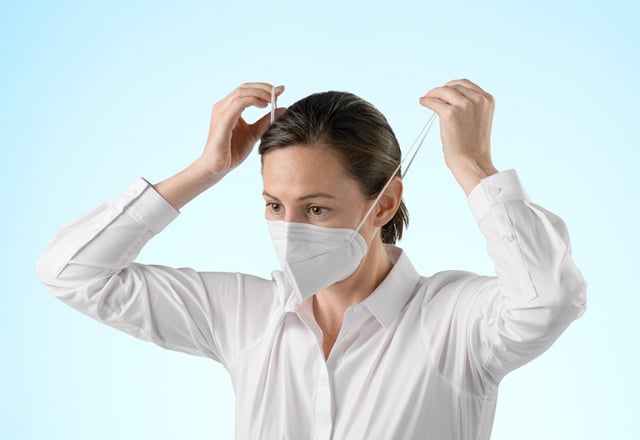Face masks, including surgical face masks and respirator masks, are essential for protecting your health and safety across both medical and everyday settings. But for many people, wearing a face mask or respirator for hours each day can lead to skin irritation, breakouts, or acne, also known as “maskne”.
Read on as we step you through the process of choosing the right surgical mask for sensitive skin or how to prevent mask acne. We’ll also discuss how to care for your skin while wearing a mask to protect yourself from airborne hazards.
Why do face masks affect your skin?
Whether you work in a healthcare setting, your job requires you to wear a face mask, or you prefer to protect yourself with a mask while out in public, you’ve probably heard about surgical masks breaking out skin. Here are some of the ways face masks and respirators can irritate your skin:
- Friction: Prolonged use of face masks or respirators can cause skin irritation due to rubbing and friction.
- Heat and humidity: As you exhale inside your face mask, the heat and humidity become trapped, leading to clogged pores, breakouts, and maskne.
- Sensitivity to mask materials: If you have sensitive skin, you might experience reactions to certain mask materials, like rubber, nickel, or preservatives found in the mask materials.
Reactions to face masks and respirators can often be exacerbated if you have a pre-existing skin condition, like psoriasis, atopic dermatitis, or acne.
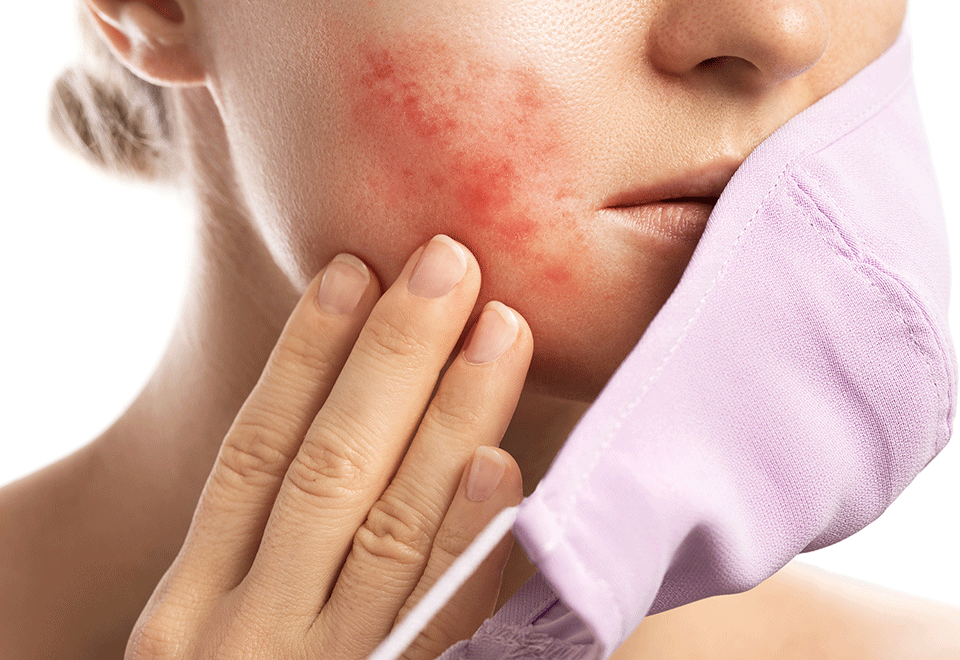
Choosing the right mask and respirator for your skin type
Selecting the right face mask for your skin type can often go a long way to relieving common symptoms, like skin irritation and maskne. Whether you suffer from acne-prone skin or sensitive skin, here are a few factors to consider when choosing a suitable face mask.
Face Masks and Respirators for Acne - Prone Skin
Hot, humid environments are a breeding ground for acne-causing bacteria, so it comes as no surprise that certain face masks and respirators can aggravate breakouts. When choosing a surgical face mask or respirator, you’ll want to look for a mask that’s breathable and made from lightweight materials. It should provide a secure fit without rubbing excessively against your face.
Single-use surgical face masks and respirators are often gentler on acne-prone skin compared to cloth masks. This means they’re less likely to cause flare-ups, breakouts and maskne.
Face Masks & Respirators for Sensitive Skin
Face masks and respirators can also cause irritation for people with sensitive skin. If your skin is easily irritated, look for a face mask or respirator that features a soft inner lining to help reduce friction and potential irritation. Similarly, hypoallergenic materials can also help minimise the chance of skin reactions. Once again, a secure, comfortable fit is key to reducing rubbing on delicate areas, like behind the ears and across the bridge of your nose.
At Detmold Medical, our surgical face masks are available with either earloops or head ties, giving users the option to choose what suits them best. For those who prefer a more secure and comfortable fit, especially during extended wear, head ties are a popular choice. Our P2 masks feature soft, knitted earloops, which dermatologists have identified as a more skin-friendly alternative to traditional elastic earloops.
When choosing a face mask or respirator, comfort, fit and skin-friendly materials are just as important as filtration and protection. At Detmold Medical, we’re proud to produce high-quality surgical face masks and respirators that are designed to support both safety and skin health.
How to protect your skin while wearing a mask
Is your surgical mask breaking out your skin? Here are six steps you can take to protect your skin and prevent irritation:
- Cleanse daily: Cleansing your skin before and after wearing a face mask helps keep your skin clean and clear of acne-causing bacteria.
- Keep your skin moisturised: Many people suffer from dry skin after using a face mask. Applying a non-comedogenic moisturiser can keep your skin hydrated and act as a protective barrier.
- Avoid wearing heavy makeup: Heavy makeup can quickly block pores and cause breakouts, especially if worn under a face mask. If you have to wear makeup, opt for light coverage products that are non-comedogenic, meaning they won’t clog your pores.
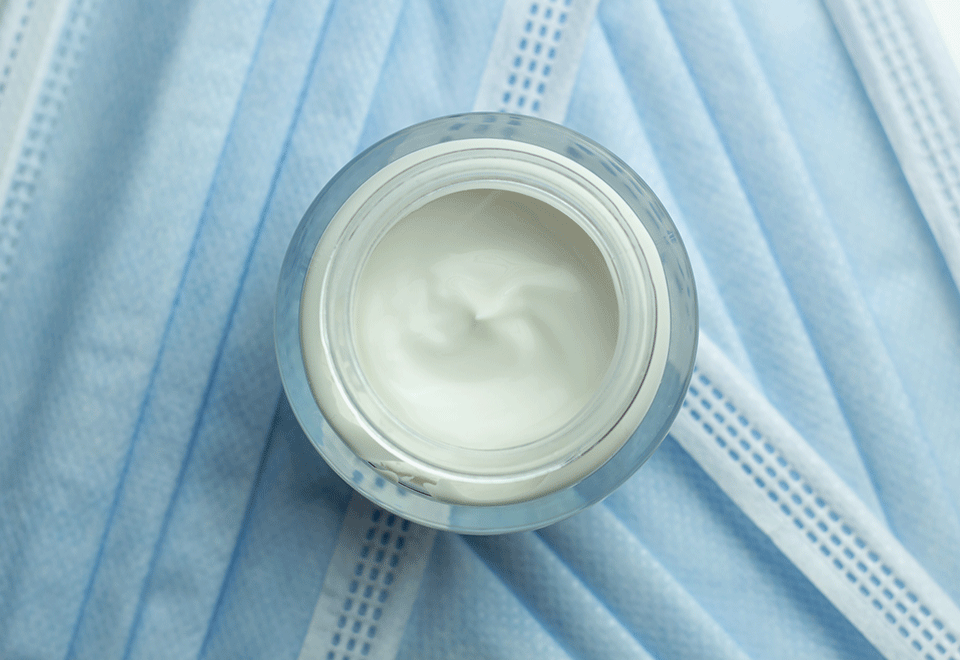
4. Take mask breaks: If your work allows for it, a 15-minute break every four hours when your face mask is due to be replaced can provide some time for your skin to breathe.
5. Replace your masks regularly: Single-use face masks and respirators are designed to be replaced every four hours, or when they become soiled or damaged. Don’t be tempted to reuse a disposable mask—not only will its protective properties be compromised, but there’s a good chance your skin will be exposed to a buildup of grime and bacteria.
6. Ensure correct mask fit: A snug, comfortable face mask or respirator can reduce the risk of friction and skin irritation. Plus, having the right fit ensures the correct level of protection.
If you’ve followed these steps and you’re still experiencing skin irritation, breakouts or maskne, it’s important to seek professional medical advice. In some instances, your doctor may refer you to a dermatologist who can recommend medical-grade skincare or treatments based on your condition.
When it comes to face masks and respirators, there’s no need to compromise on safety over comfort. In fact, protection and comfort can go hand-in-hand. Choosing the right surgical face mask for sensitive or acne-prone skin, combined with good skincare habits, can help to prevent irritation.
Detmold Medical is home to a range of high-quality surgical face masks and respirators that have been designed with safety and comfort in mind. Explore the collection today or use our face mask comparator to find the best mask for your needs.





